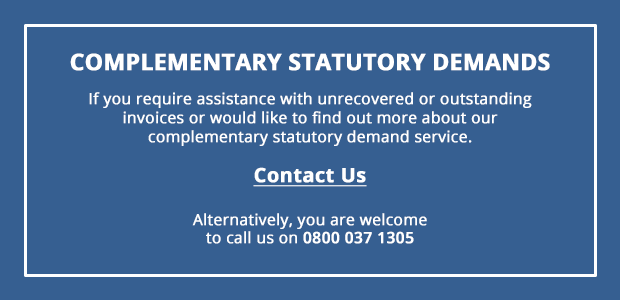Debt Recovery For Construction Projects: Challenges And Solutions

The construction industry is a hugely important sector within the UK economy, contributing significantly to infrastructural development in the UK. Statista 2024 expects the construction sector to increase in growth to a revenue of £476.6 billion by 2027 with building construction forming the largest segment of the market with a whopping growth in revenue up to £238.4 billion. However, UK construction sector and the companies within it are beset with issues relating to late payment and insolvency. These challenges are a significant drag on the UK construction sector, creating instability as well as a challenging environment for growth.
According to PWC and Builders Merchant News, an increase in insolvencies highlights financial pressure and challenges faced by the UK construction sector as it remains the industry with the highest number of insolvencies in the UK, with almost one fifth of the entire insolvency cases in 2023.
[presto_player id=18510]
This article explores the common challenges encountered in relation to late payment, debt recovery and insolvency for construction projects in the UK and offers practical and implementable solutions to overcome these challenges.
COMMON CHALLENGES IN UK CONSTRUCTION DEBT RECOVERY AND INSOLVENCY?
The most common challenges in the UK construction industry ranges from late payments, delays and difficulty with complex and complicated dispute resolution mechanisms as well as client or contractor insolvency.
Late payment is a particularly pernicious and prevalent issue which disrupts both upstream and downstream cash flow and project timelines, while disputes over work quality, scope, and contractual terms can lead to delays and additional costs and in the process, the collapse of companies along the pipeline.
The insolvency of clients or contractors poses significant risks businesses in the sector, including unpaid invoices and potential project delays. Added to these issues is the complex contractual arrangements needed to govern and protect the interests of parties involved particularly in large scale projects. Throw in a springle of inadequate documentation and processes and you have very complicated debt recovery situations and weakened legal claims requiring a higher degree of effort and resources to resolve, not to mention the additional costs required to reach a resolution and/or settlement.
SOLUTIONS TO OVERCOME DEBT RECOVERY CHALLENGES
How can companies engaging in construction projects and in general those operating within the construction sector protect themselves from these headwinds and avoid disputes leading to construction litigation?
Effective Contract Management
Implementing clear and concise contractual terms and regularly reviewing and updating contracts can help prevent disputes from arising and facilitate smoother debt recovery processes. Companies should ensure that the contracts are professionally drawn up and that staff are provided adequate training on the terms of the contract for each project.
Additionally, clear communication of payment terms and expectations at the outset of the project as well as vigilance can help avoid misunderstandings and reduce costly and time absorbing disputes.
Early Intervention and Communication
Ensuring prompt identification of payment issues and engaging in open and transparent communication with clients or contractors can help resolve payment issues and differences before they escalate into disputes. Establishing a clear process for addressing payment issues & maintaining regular communication throughout the project can foster positive relationships and facilitate timely payment. Timely payment should be prioritised as this is crucial for maintaining healthy cash flow & ensuring the successful completion of projects.
Alternative Dispute Resolution (ADR)
Mediation and arbitration can offer cost-effective and efficient alternatives to construction litigation for resolving disputes in construction projects. Engaging in ADR processes such as adjudication, mediation, early neutral determination and negotiations can help parties reach mutually beneficial agreements, avoid the time, expense, and uncertainty associated with court proceedings and litigation as well as preserve relationships.
Credit Management and Risk Assessment
Credit management and risk assessment are all essential for identifying potential risks coupled with taking adequate and appropriate steps to mitigate exposure to bad debt. It is beneficial to conduct thorough credit checks on clients or contractors before entering into contracts and implementing credit management policies and procedures can help identify potential risks and mitigate exposure to bad debt. An example of this might be in situations where substantial risk has been identified to insist on personal guarantees where possible or upfront payments.
Regular monitoring of payment performance and taking proactive steps to address payment issues as soon as they arise can help minimise the impact of late payments and insolvencies on cash flow.
Legal Remedies and Enforcement
Understanding the legal options available for debt recovery and engaging legal professionals specialised in construction law at an early stage can help construction companies enforce their rights and recover unpaid invoices effectively and efficiently. Taking timely legal action when necessary and pursuing all available remedies can help expedite the debt recovery process and protect the company’s interests.
Conclusion
Debt recovery and navigating insolvency laws and systems remains a complex and challenging process for construction companies, but proactive strategies and effective communication can help mitigate risks and facilitate smoother payment processes.
By understanding the common challenges in debt recovery and collection of unpaid debt and implementing practical solutions, UK construction companies can protect their interests, maintain healthy cash flow, and ensure the successful completion of projects as well as safeguard growth.
Effective contract management, early intervention and communication as well as the use of alternative dispute resolution (ADR), credit management and risk assessment as well as legal enforcement are key strategies to overcome debt recovery challenges.
Establish a clear process for addressing payment issues and maintain regular communication with clients or contractors throughout the project. Conduct thorough credit checks and implement credit management policies and procedures to identify and mitigate potential risks.
Engage in alternative dispute resolution processes, such as mediation and adjudication, to resolve disputes efficiently and cost-effectively. Seek legal advice and assistance from professionals who are specialists in construction and insolvency law to understand your rights and enforce contractual obligations effectively. It is often said that the best advice is to seek advice early.
About Hallmark Solicitors
Hallmark Solicitors is a commercial law firm specialising in debt recovery, construction and insolvency law. Our solicitors provide legal advice to businesses of every size and handle complex cases on a regular basis. Our highly qualified lawyers are experts in their field and are genuinely committed to excellence in every aspect of their work, providing clients with a timely, cost effective and highly personalised solution.
We are easily accessible with Consulting Offices based in London, Leeds & Kingston upon Hull where we have our head office. We provide a genuine alternative to large and medium size law firms and boast a client-reach that extends far beyond the borders of the United Kingdom.
Excellence is our hallmark – We take time and effort to understand our clients’ problems, their aims and objectives in order to provide an effective and responsive service. We take a results-based approach whilst alerting our clients as to what is realistic and attainable to enable them make an informed decision.
With technological advances, cross-border trade has become a more integral part of our client’s business activities. As a result, our solicitors practice with both a national and international perspective.
We are more than happy to have a no-obligation discussion about any matter that you might have and we can be contacted on 0800 037 1305 or +44 (0)1482 616 616 (if calling from outside the UK).
Disclaimer: Please note that this article is provided for general information only. It is not intended to amount to advice on which you should rely. You must obtain professional or specialist advice before taking, or refraining from, any action on the basis of the content of this article.
Hallmark Solicitors is the trading name of Hallmark Legal Services Ltd a Limited Liability Company. Registered in England & Wales (Co. 6634235)
Head Officer: Chandlers Court, 158/159 High Street, Hull.
Consulting Offices: London & Leeds
Authorised and Regulated by the Solicitors Regulation Authority (499161)



